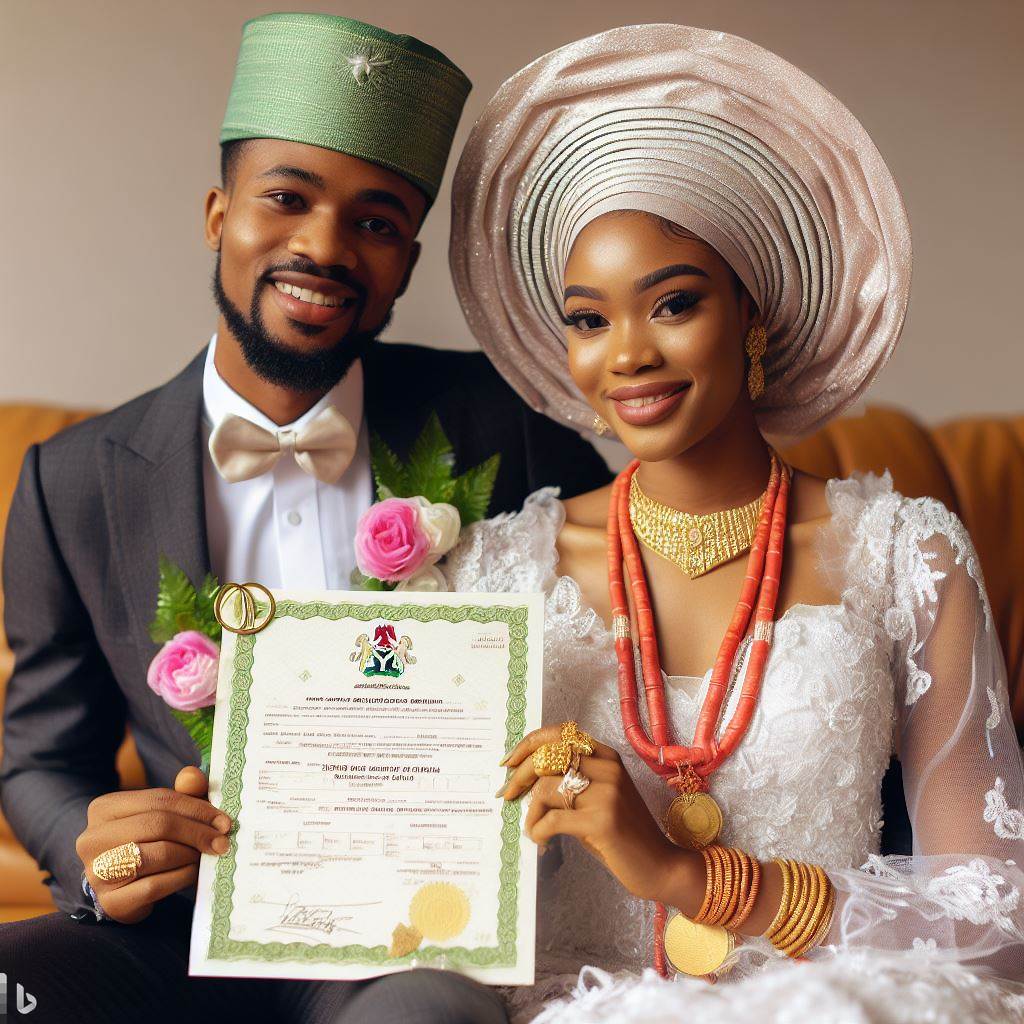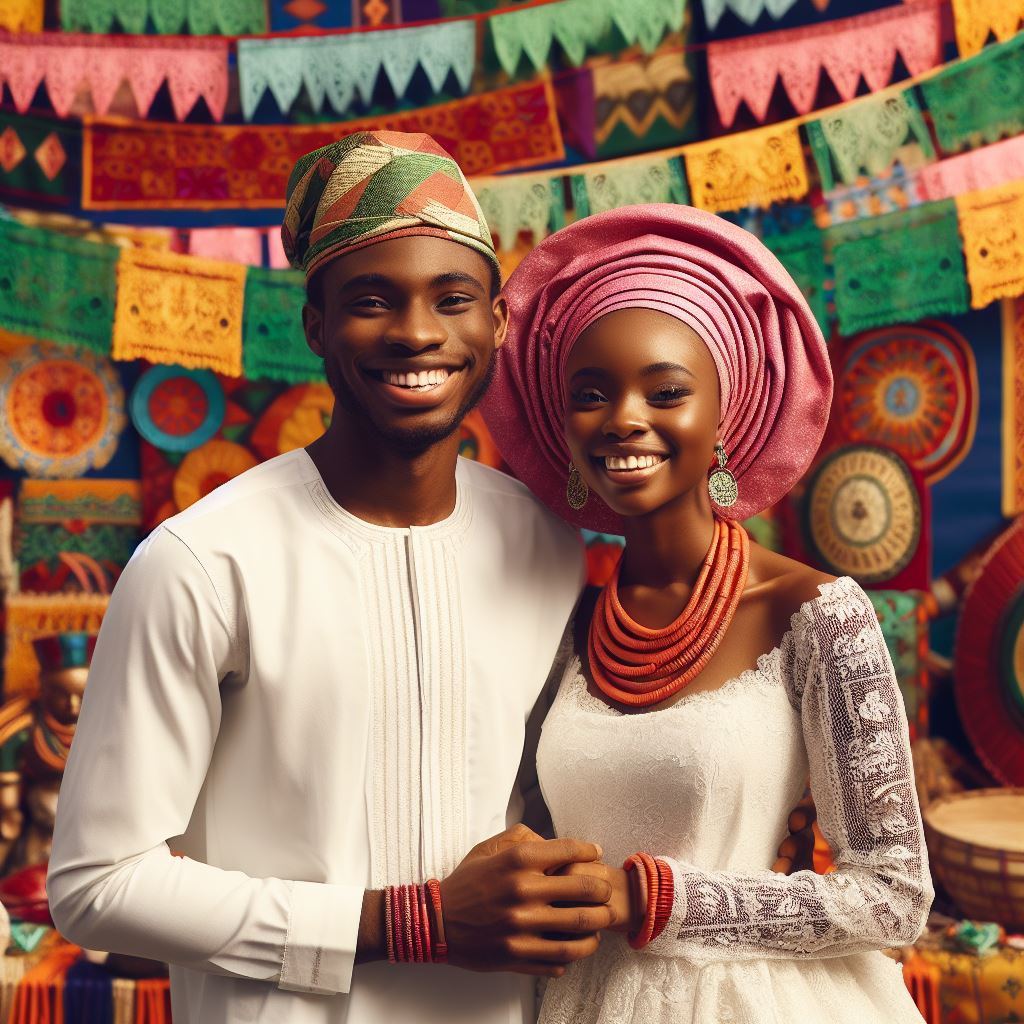Introduction
Let’s explore children & marriage-based citizenship: What you should know.
Marriage-based citizenship is the acquisition of citizenship through marriage to a citizen of a particular country.
It allows non-citizens to become legal residents and enjoy the same rights and privileges as their citizen spouse.
However, it is essential to consider the implications for children involved in this process.
When a non-citizen parent obtains citizenship through marriage, their children may also gain citizenship.
This can have significant advantages for the children in terms of education, healthcare, and future opportunities.
It ensures their access to a stable and secure future.
Additionally, children born to parents who are both citizens have the right to citizenship by birth.
This protects their rights and allows them to grow up in a supportive environment with legal recognition.
It is crucial for parents to understand the implications of marriage-based citizenship for their children.
They must navigate the legal requirements, such as providing necessary documentation and meeting residency criteria.
Failing to comply with these requirements may put their children’s citizenship status at risk.
Moreover, understanding the rights and responsibilities that come with citizenship is vital for both parents and children.
This knowledge allows them to fully participate in society, exercise their rights, and contribute to their community.
In short, marriage-based citizenship not only benefits the non-citizen spouse but also has implications for their children.
Understanding the process and its impact on children is essential to ensure their rights and future prospects.
Overview of Citizenship Laws in Nigeria
Understanding the various ways one can acquire Nigerian citizenship is crucial, particularly when it comes to children and marriage-based citizenship.
This section provides an overview of the citizenship laws in Nigeria.
Nigerian citizenship by birth
Nigerian citizenship is acquired by individuals who are born in Nigeria, regardless of their parents’ nationality.
This principle is known as jus soli, meaning “right of the soil.”
By being born in Nigeria, these individuals are automatically considered Nigerian citizens and have the right to Nigerian citizenship.
However, it is important to note that this right may be subject to certain restrictions, such as those related to diplomatic immunity.
Nigerian citizenship by descent
People born outside Nigeria can claim Nigerian citizenship if either of their parents or grandparents is a Nigerian citizen.
This principle is known as jus sanguinis, meaning “right of blood.”
If a person can prove their Nigerian lineage, they can apply for Nigerian citizenship by descent.
This process typically involves providing supporting documents, such as birth certificates, passports, or marriage certificates.
Nigerian citizenship by registration
Nigerian citizenship can also be obtained through registration if certain conditions are met.
These conditions may include residency in Nigeria for a specified period or marriage to a Nigerian citizen.
If a foreign national is married to a Nigerian citizen, they may apply for Nigerian citizenship by registration.
The process often requires submitting documentation to prove the validity of the marriage, such as marriage certificates or affidavits.
Nigerian citizenship by naturalization
Foreign nationals can become Nigerian citizens through a process of naturalization.
This process involves meeting specific requirements set by the Nigerian government.
Some of the prerequisites for naturalization may include a minimum residency period in Nigeria, fluency in one of Nigeria’s recognized languages, good character, and renunciation of any previous allegiance.
It is important to note that the naturalization process can be lengthy and requires a thorough evaluation of an individual’s eligibility for Nigerian citizenship.
In fact, Nigeria provides various pathways to acquire citizenship, including by birth, descent, registration, and naturalization.
Understanding these different routes is vital, especially for individuals seeking citizenship for their children or through marriage.
By following the appropriate legal procedures, individuals can ensure that their children or spouses can enjoy the benefits and rights associated with Nigerian citizenship.
Legal Framework for Children and Citizenship in Nigeria
Nigerian Constitution provisions on citizenship for children
The Nigerian Constitution recognizes the right of every child to Nigerian citizenship.
According to Section 25 of the Constitution, a child born to at least one Nigerian parent is automatically a citizen.
This provision ensures that children are not stateless and have legal rights in Nigeria.
It also serves as a means to preserve the Nigerian identity and connection to the country
Issues related to children born to Nigerian citizens abroad
Children born abroad to Nigerian citizens face challenges in acquiring Nigerian citizenship.
The Nigerian Constitution requires such children to be registered at a Nigerian embassy or consulate within one year of birth.
Failure to complete the registration process may result in the child being denied Nigerian citizenship.
This requirement aims to maintain a strong link between Nigeria and its citizens living abroad.
It also ensures that children born abroad have proof of their Nigerian heritage.
Challenges faced by children of mixed-nationality marriages
Children born to parents of different nationalities often face complex citizenship issues.
If one parent is Nigerian, the child can acquire Nigerian citizenship through birth registration.
However, if both parents are foreigners, the child may not automatically become a Nigerian citizen.
These children may need to apply for Nigerian citizenship through naturalization or other means.
The process can involve administrative hurdles and lengthy waiting periods.
Children of mixed-nationality marriages may also face challenges in obtaining citizenship rights in the other parent’s country.
In essence, the legal framework for children and citizenship in Nigeria provides important provisions to ensure the rights and recognition of children.
Section 25 of the Nigerian Constitution guarantees Nigerian citizenship to children born to at least one Nigerian parent, avoiding statelessness and preserving national identity.
However, challenges arise for children born abroad to Nigerian citizens, as they are required to register their birth at a Nigerian embassy or consulate within one year.
Children of mixed-nationality marriages also face complexities, with citizenship eligibility depending on the nationality of their parents.
Their acquisition of Nigerian citizenship may require additional steps, such as naturalization, which can be a lengthy and bureaucratic process.
It is crucial for the Nigerian government to streamline these procedures and ensure that the rights of all children are protected regardless of their parentage.
Efforts should also be made to cooperate with other countries in facilitating the recognition of dual citizenship for children in mixed-nationality marriages.
By addressing these challenges, Nigeria can ensure that every child has equal access to citizenship and the rights associated with it.
Read: Ensuring a Smooth Process: Tips for Marriage Citizenship
Marriage and Citizenship in Nigeria
Impact of marriage on a foreign spouse’s citizenship
Marriage to a Nigerian citizen can have a significant impact on a foreign spouse’s citizenship.
It provides an opportunity for the foreign spouse to potentially acquire Nigerian citizenship.
This can bring about various rights and benefits, including the right to live and work in Nigeria without restrictions.
It also offers the possibility of obtaining a Nigerian passport, which enables easier travel and access to consular services.
However, it’s important to note that marriage alone does not automatically grant citizenship.
The foreign spouse must fulfill certain requirements and go through the appropriate process to acquire Nigerian citizenship.
Acquisition of Nigerian citizenship through marriage
Nigeria recognizes marriage as a legitimate means for foreigners to obtain citizenship.
Foreign spouses of Nigerian citizens can apply for naturalization after being married for at least five years.
During this period, they must also have been resident in Nigeria for a minimum of three years.
Furthermore, the marriage must be recognized as valid under Nigerian law.
Foreign spouses are required to demonstrate good character and proficiency in the English language.
They should also have a reasonable knowledge of Nigeria’s culture, history, and government.
Requirements and process for obtaining citizenship through marriage
- To begin the process, the foreign spouse must submit an application to the Nigerian Immigration Service (NIS).
- The application should include relevant documents, such as a marriage certificate, birth certificate, and a valid passport.
- The NIS will conduct a thorough background check and may request additional documentation or information.
- Upon approval, the foreign spouse will be required to take an oath of allegiance to Nigeria.
- They will then be issued a Certificate of Naturalization, officially granting them Nigerian citizenship.
- It’s important to note that the process can be lengthy, and patience is required.
- Additionally, there may be fees associated with the application and processing of the citizenship.
In general, marriage can have a significant impact on a foreign spouse’s citizenship, providing an opportunity to acquire Nigerian citizenship.
However, it is essential to fulfill certain requirements and go through the appropriate process.
The acquisition of Nigerian citizenship brings various rights and benefits, including the ability to live and work in Nigeria without restrictions.
The process, administered by the Nigerian Immigration Service, involves submitting an application, undergoing background checks, and taking an oath of allegiance.
While the process may be lengthy and fees may apply, the outcome offers the foreign spouse a sense of belonging and access to Nigerian consular services.
Read: The Emotional Journey of Pursuing Citizenship by Marriage

Implications for Children in Mixed-Nationality Marriages
Children born to parents of different nationalities face unique challenges and opportunities.
Factors such as dual citizenship, rights and privileges, and the impact on their relationship with their parents and society all come into play.
Dual citizenship and its importance for children
- Dual citizenship allows children to have legal ties to two countries, giving them greater mobility and opportunities.
- It provides a sense of identity and connection to both sides of their heritage.
- Children with dual citizenship may have access to better education and healthcare options.
Rights and privileges of children with dual citizenship
- Children with dual citizenship have the right to live, work, and study in both countries without any restrictions.
- They may also be eligible for social benefits, such as healthcare and welfare programs, in both countries.
- Furthermore, dual citizens can vote, run for office, and enjoy other political rights in both nations.
Challenges faced by children with different citizenships than their parents
- Language and cultural differences can create a gap between children and their parents, making communication and understanding difficult.
- Travel restrictions and visa requirements can complicate family visits and reunions.
- In some cases, children may feel torn between their two nationalities and struggle with their sense of belonging.
- They may face discrimination or prejudice based on their mixed-nationality background.
- Legal systems and laws regarding citizenship can vary, resulting in complex bureaucratic processes for children and their families.
In review, children in mixed-nationality marriages experience both advantages and challenges.
Dual citizenship empowers them with greater opportunities and connections to their heritage.
They enjoy rights and privileges in both countries, including access to education and healthcare.
However, cultural and linguistic gaps, travel restrictions, identity struggles, and legal complexities are potential obstacles they may face.
Recognizing and addressing these issues is crucial to ensure the well-being and integration of children into their multicultural world.
Read: Financial Implications of Marriage-Based Citizenship in Nigeria
Case Studies
Illustrative examples of children in mixed-nationality marriages navigating citizenship issues
- Martha, a child of a mixed-nationality marriage, faced challenges in obtaining citizenship in both countries.
- Jose, born to a foreign father and a citizen mother, was granted dual citizenship automatically.
- Sarah, whose parents divorced, struggled with citizenship issues due to her father’s non-citizen status.
- David, having a non-citizen mother, faced limitations in accessing certain benefits and opportunities.
- Anna, born to parents from different countries, had to go through a complex process to acquire citizenship.
Impact of citizenship status on education, healthcare, and travel opportunities
- A child with citizenship in both countries has the freedom to study and live in either country.
- Children with non-citizen parents may face limited access to educational opportunities and scholarships.
- Citizenship status can affect a child’s eligibility for government-funded healthcare programs.
- Some countries may require additional documentation and visas for non-citizen children to travel internationally.
- Children with dual citizenship can benefit from broader travel opportunities and visa-free travel between countries.
- Non-citizen children may encounter obstacles in obtaining visas for studying abroad or attending international conferences.
- Citizenship status often determines the availability of financial aid options for higher education.
- Non-citizen children may face challenges in accessing certain government services and support systems.
- Children without citizenship may have difficulty obtaining work permits or pursuing a career in certain professions.
- Citizenship can provide children with better protection under the law and access to legal rights and representation.
Understanding these case studies and the impact of citizenship status on various aspects of a child’s life can help individuals and policymakers make informed decisions regarding children in mixed-nationality marriages.
Read: Understanding the Revocation of Citizenship in Nigeria
Solutions and Recommendations
In this section, we will explore solutions and recommendations for protecting the rights of children in mixed-nationality marriages.
These include legal provisions, educating parents on citizenship planning, and advocating for policy changes.
Legal provisions that can protect the rights of children in mixed-nationality marriages
- Dual citizenship: Encourage countries to allow dual citizenship for children born to mixed-nationality parents. This ensures that children can enjoy the rights and benefits of both their parents’ countries.
- Automatic citizenship: Advocate for legislation that grants automatic citizenship to children born in a country where one or both parents are citizens. This prevents statelessness and guarantees children’s access to essential services and protections.
- Non-discriminatory immigration laws: Push for immigration laws that do not discriminate against children in mixed-nationality marriages. Ensure that children have equal opportunities to obtain citizenship and avoid being excluded from their parents’ home country.
Educating parents on the importance of citizenship planning for their children
- Parental awareness campaigns: Launch campaigns to educate parents on the importance of citizenship planning for their children. Provide information on the potential challenges they may face and the benefits of securing their children’s citizenship rights.
- Legal consultations: Encourage parents to seek legal consultations to better understand the implications of their children’s citizenship status. Provide resources and support services to help them navigate the complex legal processes involved.
- Collaboration with educational institutions: Partner with schools and educational institutions to incorporate citizenship education into their curriculum. Teach children about their rights, responsibilities, and the importance of preserving their citizenship.
Advocacy for policy changes to address challenges faced by children in mixed-nationality marriages
- Family reunification policies: Advocate for family reunification policies that prioritize the well-being and unity of mixed-nationality families. Ensure that children are not separated from their parents due to citizenship complications.
- Streamlined citizenship applications: Lobby for streamlined and efficient citizenship application processes for children in mixed-nationality marriages. Reduce bureaucratic obstacles and ensure timely decisions to avoid unnecessary delays and uncertainties.
- International cooperation: Collaborate with international organizations and partner countries to share best practices and develop common guidelines for protecting the rights of children in mixed-nationality marriages. Advocate for concerted efforts on a global scale.
In brief, protecting the rights of children in mixed-nationality marriages requires a multifaceted approach.
Implementing legal provisions, educating parents, and advocating for policy changes are crucial steps in ensuring that children have equal access to citizenship rights and are not disadvantaged due to their parents’ different nationalities.
By working together, we can create a more inclusive and equitable society for children in mixed-nationality marriages.
You Might Also Like: Nigeria Marriage Registry: Tips to Expedite Your Registration
Conclusion
It is crucial to understand the intricacies of children and marriage-based citizenship in Nigeria.
Citizenship laws can have a significant impact on the future of children born in or outside of wedlock.
Here are the key points discussed:
- Children born within a valid marriage between a Nigerian citizen and a foreigner automatically acquire Nigerian citizenship.
- Children born outside of a valid marriage between a Nigerian citizen and a foreigner can acquire Nigerian citizenship if their parents fulfill certain requirements.
- The process of acquiring citizenship for children born outside of wedlock involves obtaining a declaration of paternity or an adoption order.
Understanding the importance of being informed about these laws is vital for individuals planning to have children or who already have children with a Nigerian citizen or a foreigner.
Being knowledgeable about citizenship rights and requirements will help protect the interests of the children.
We strongly encourage individuals facing citizenship-related issues for their children to seek professional advice.
Consulting immigration lawyers or experts will ensure that all necessary steps are correctly followed and that the best interests of the children are taken into account.
Remember, each situation may have unique circumstances, and professional guidance is indispensable in resolving any potential citizenship hurdles.
By staying informed and seeking professional advice, parents can navigate the complex world of children and marriage-based citizenship in Nigeria more effectively, ensuring the best possible outcomes for their children’s future.




